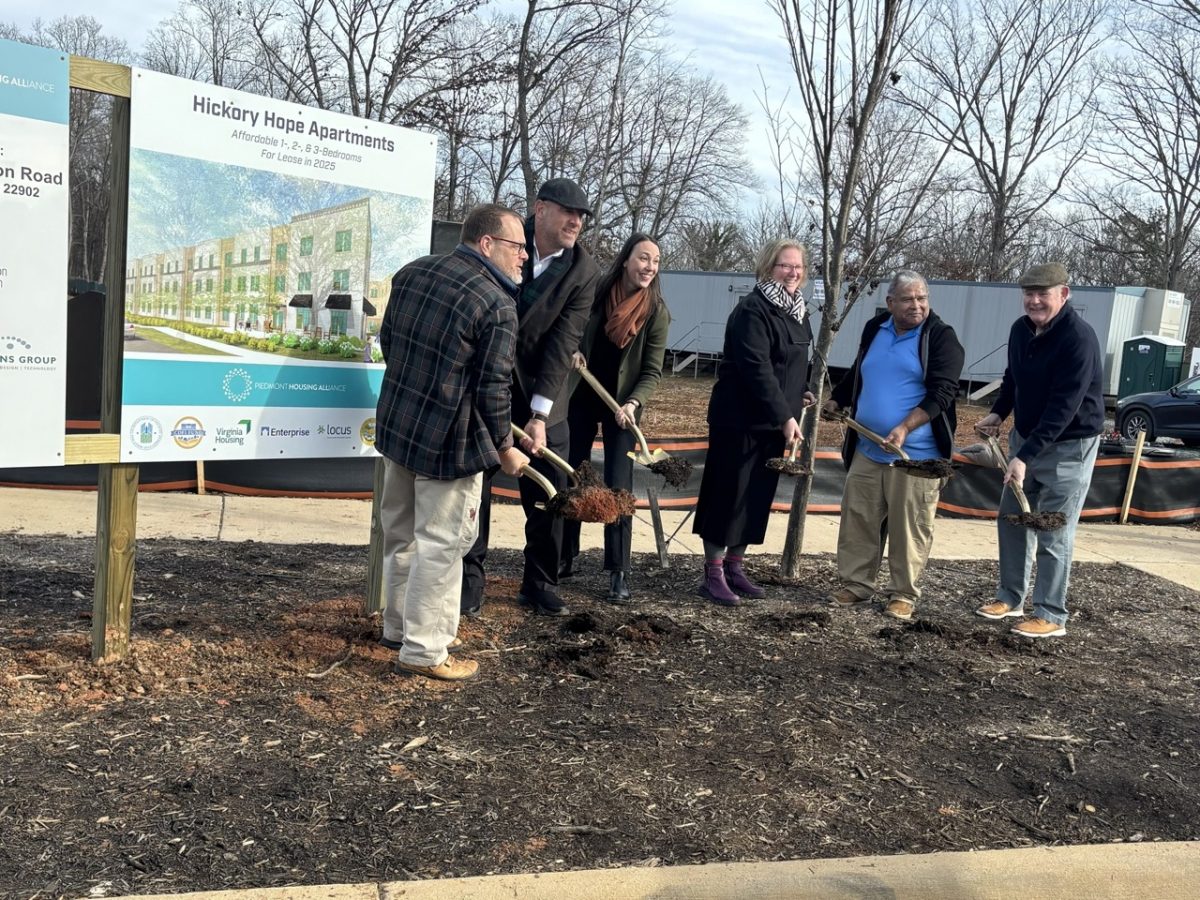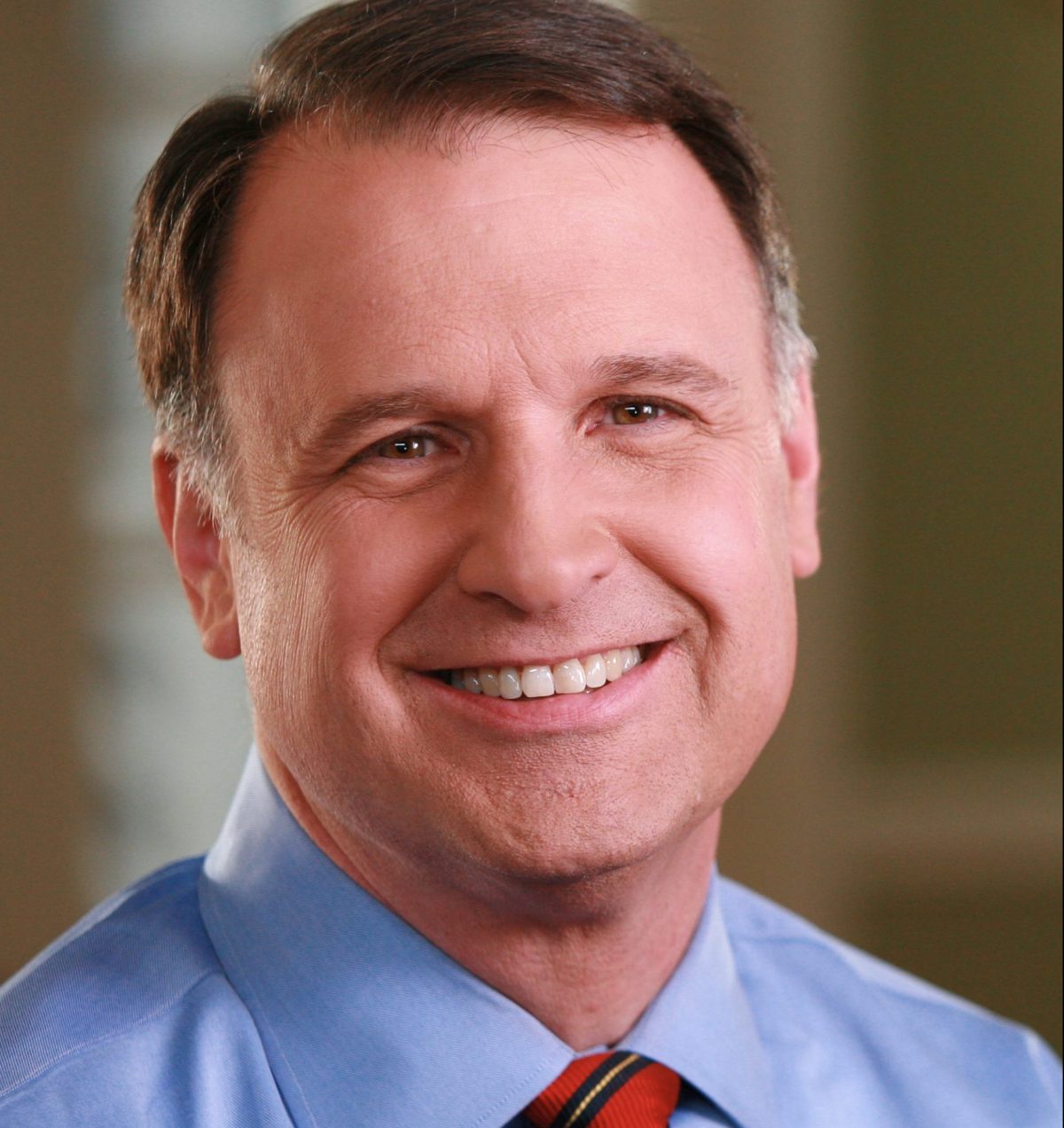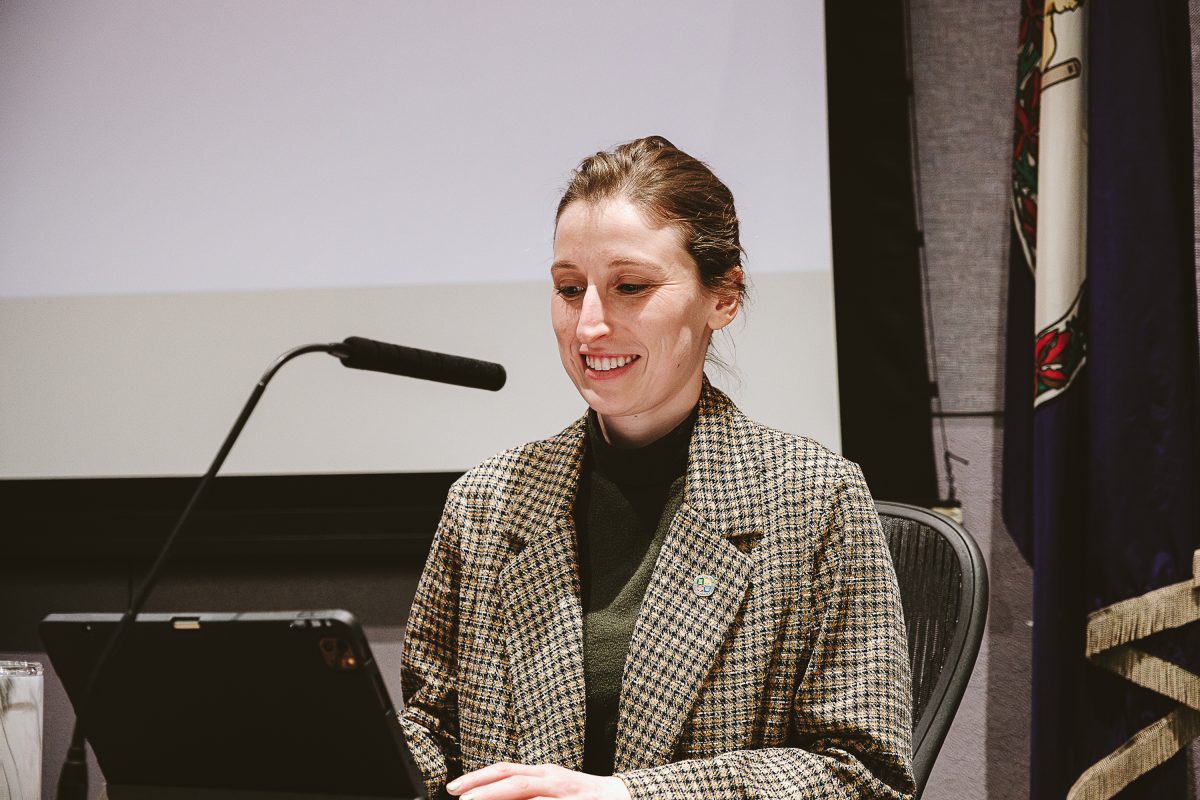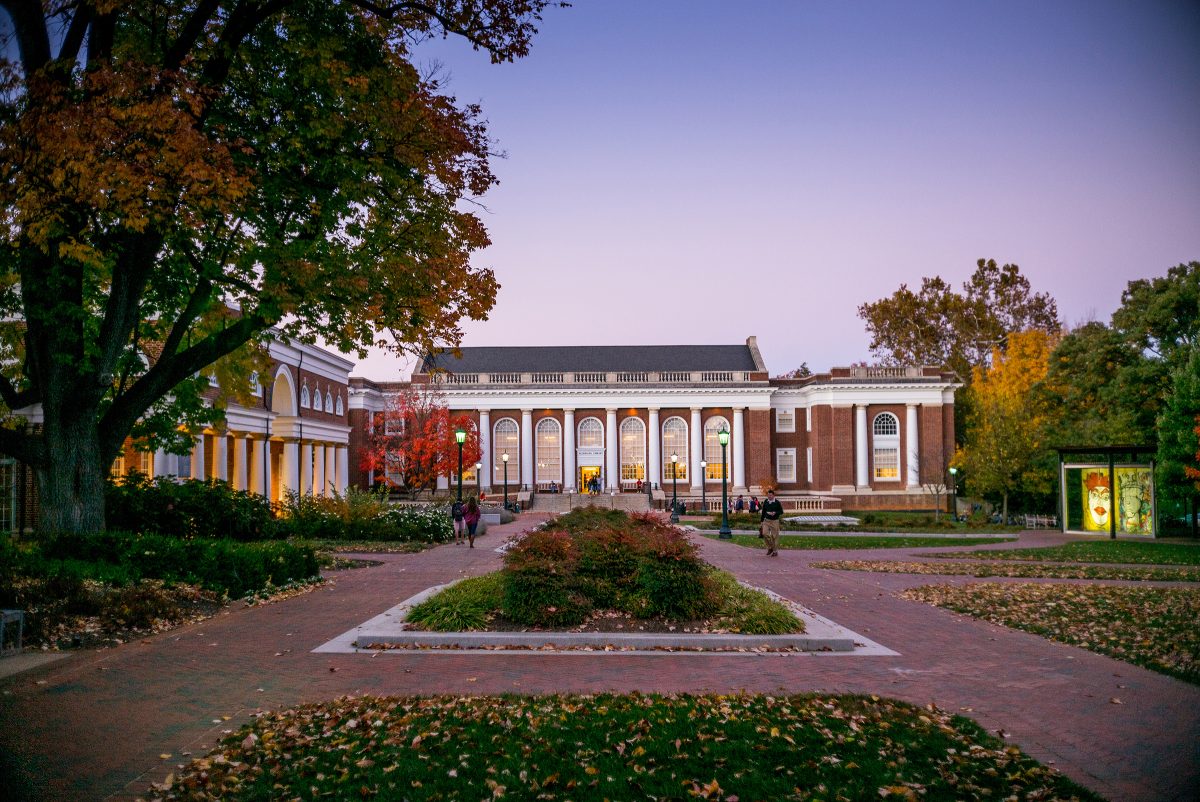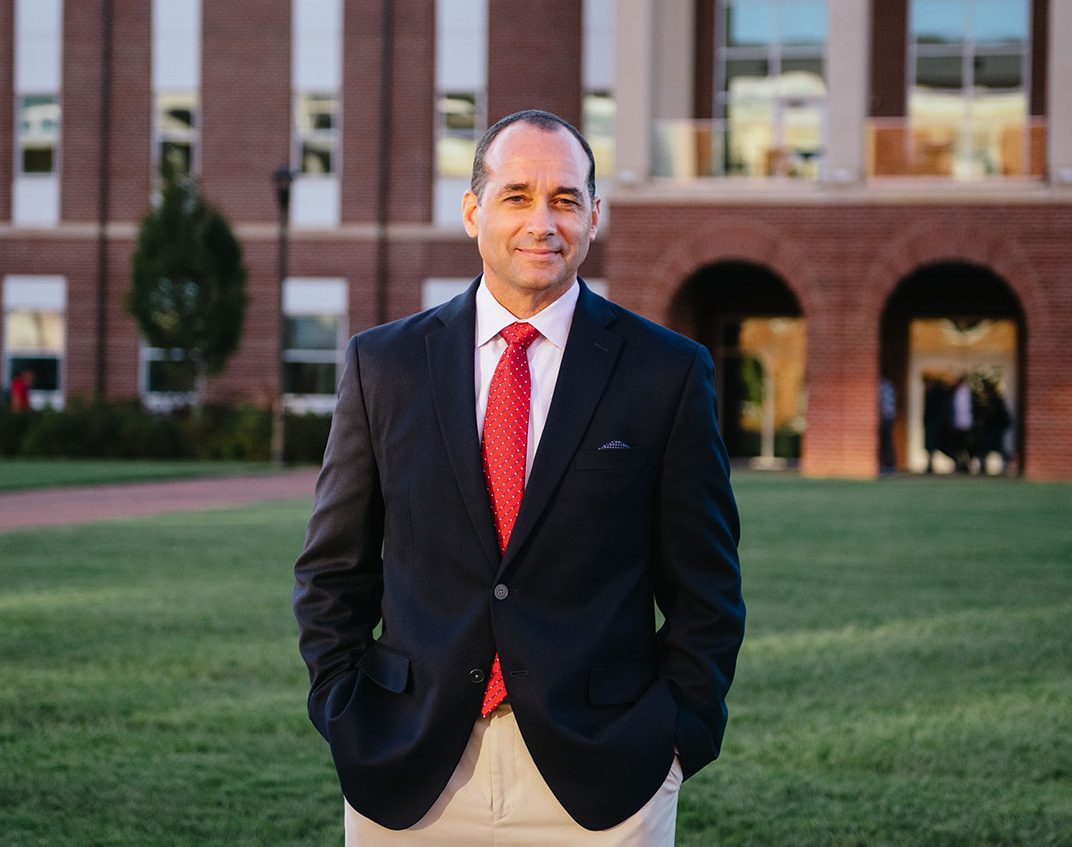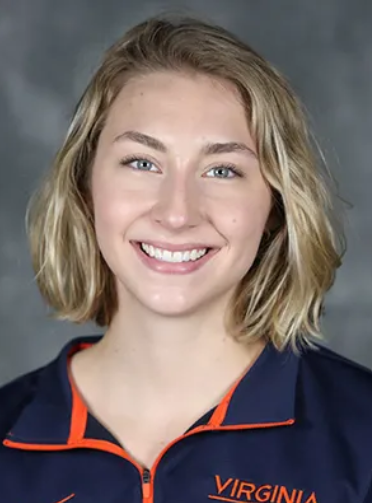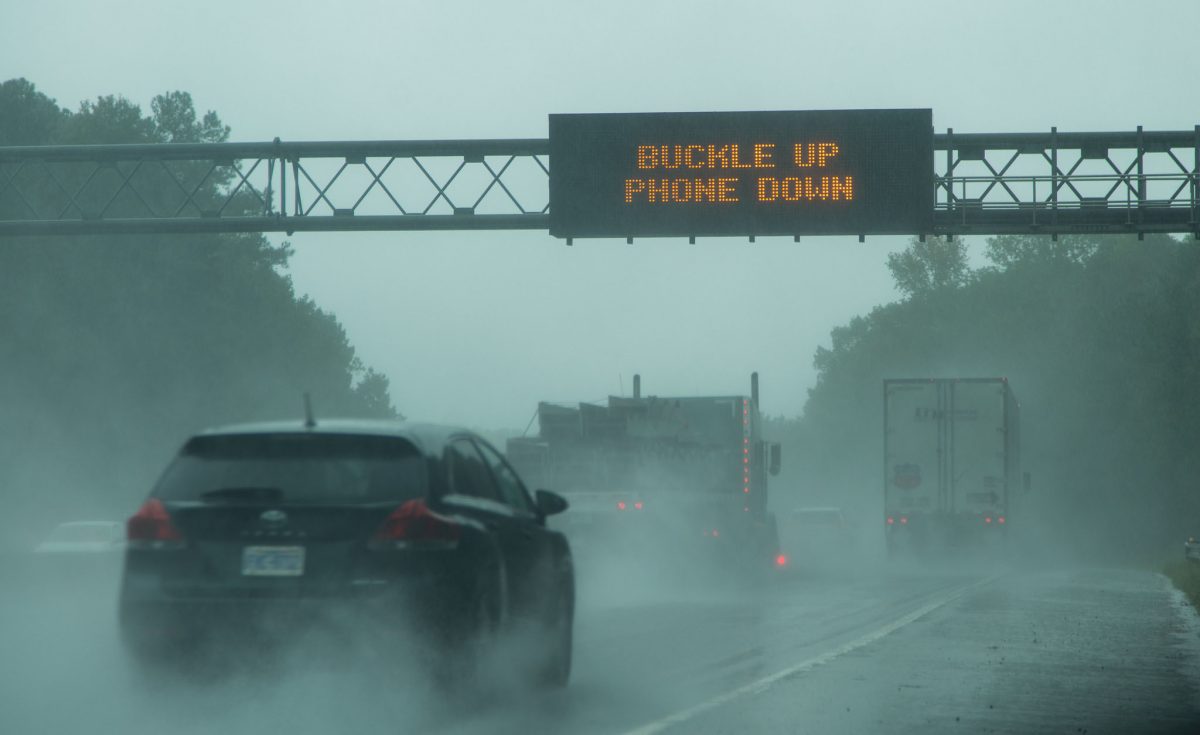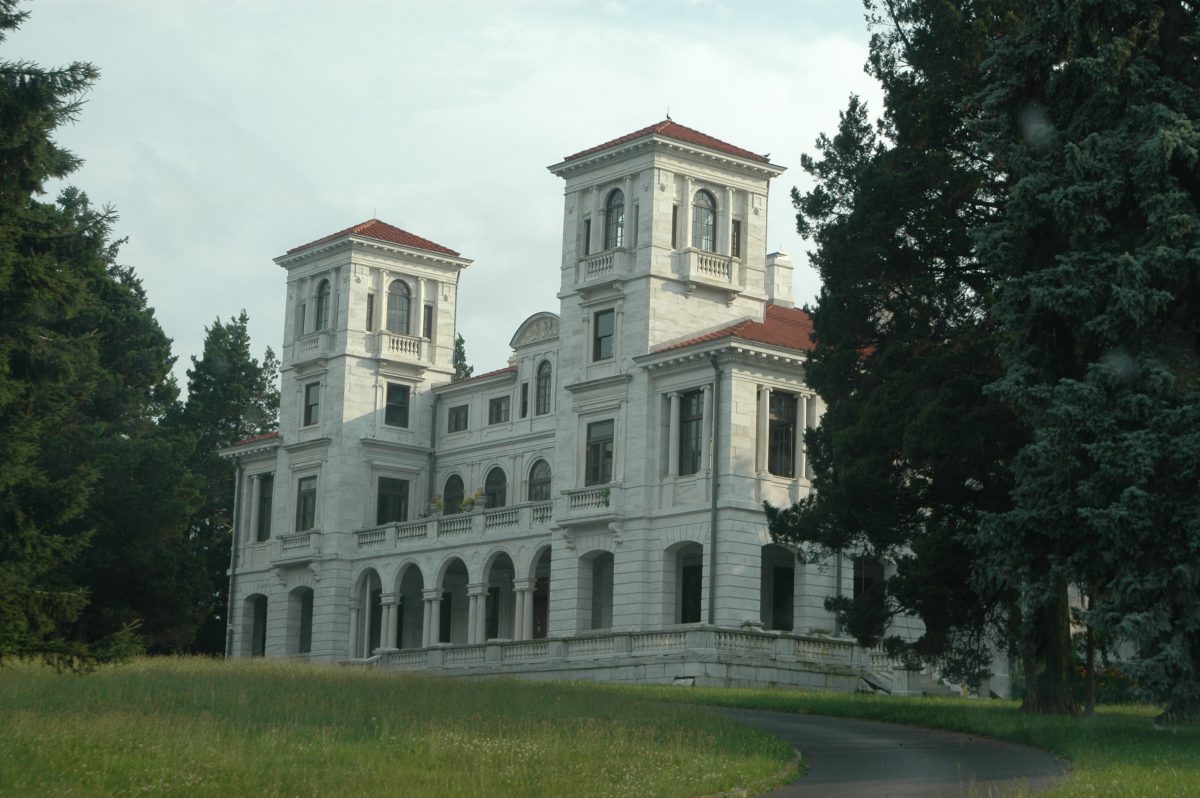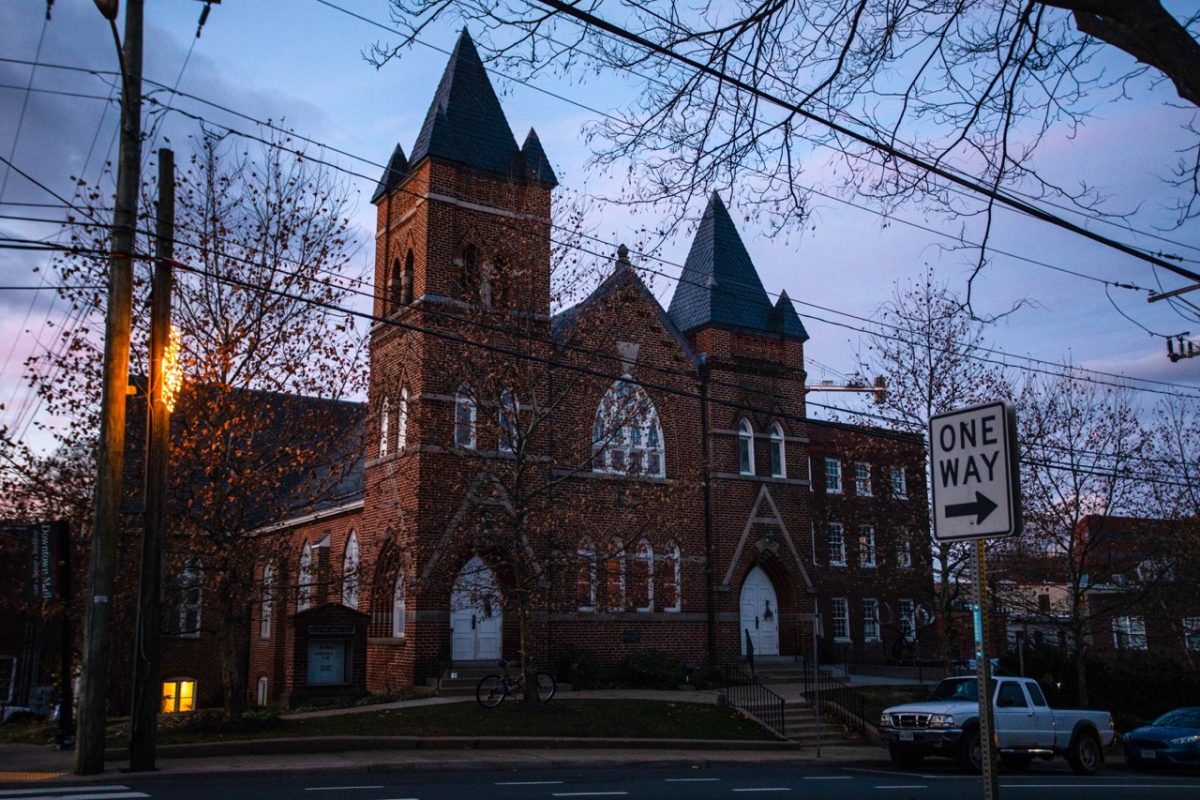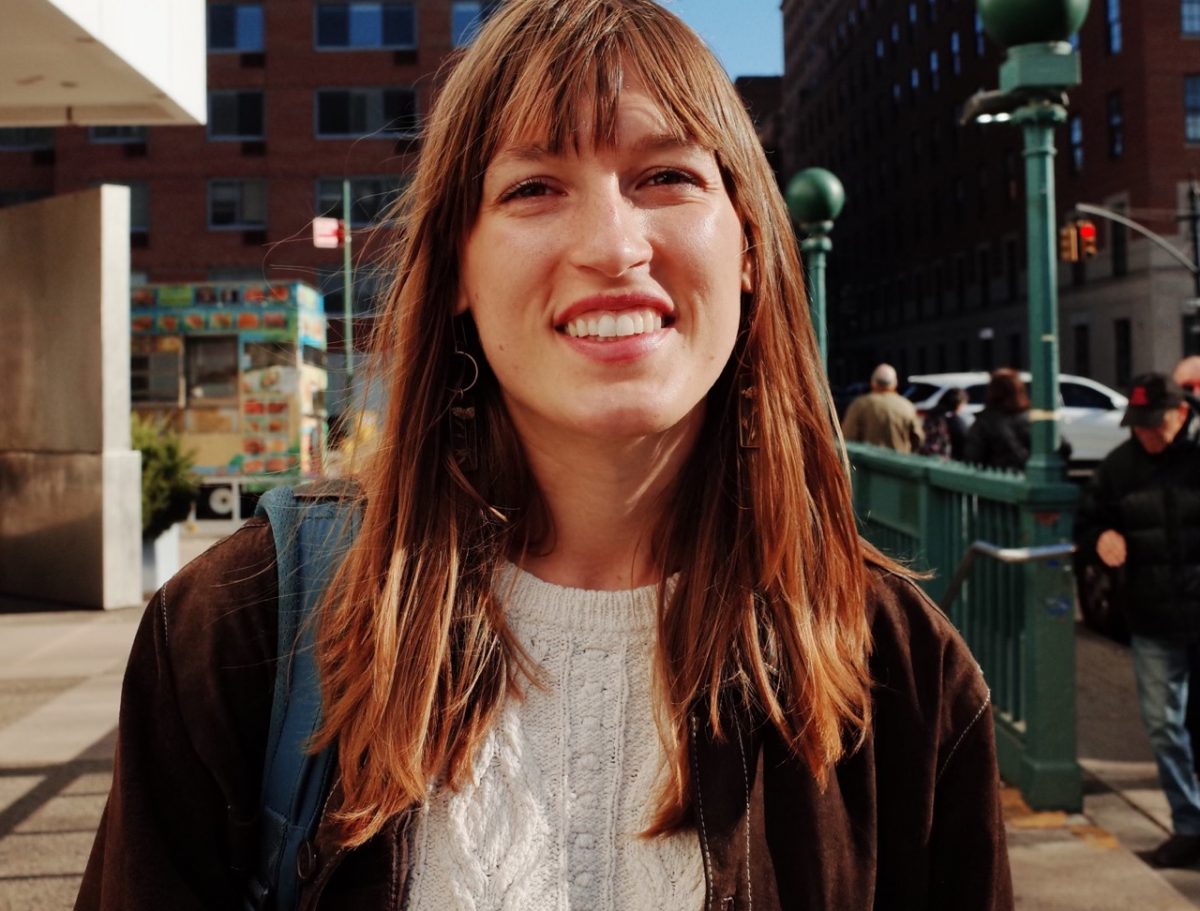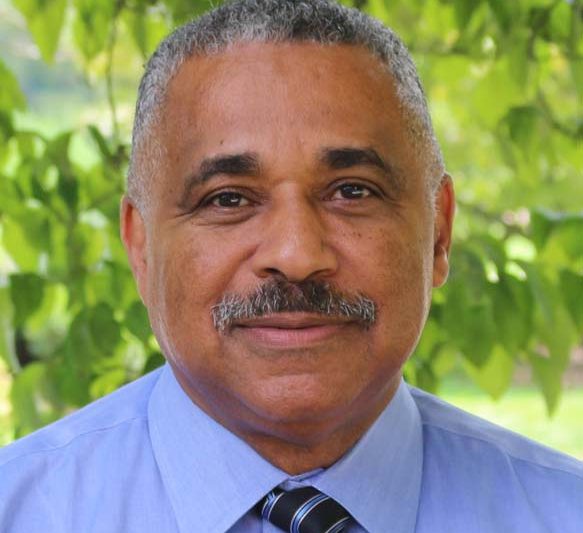On January 12, the Piedmont Housing Alliance broke ground on the Hickory Hope apartments at Southwood. The apartments will add 121 new affordable units to the community, and are the latest step forward in Southwood’s years-long resident-led redevelopment effort.
Hickory Hope apartments—a joint effort of PHA, Habitat for Humanity of Greater Charlottesville, Albemarle County, and Southwood residents—will be 100-percent affordable, with units ranging in affordability between 30 and 80 percent of area median income. According to PHA Executive Director Sunshine Mathon, housing choice vouchers will also be accepted for all units, a key measure in ensuring the units’ accessibility.
“Right now, a lot of folks who have housing choice vouchers are struggling to find housing that they can actually use their vouchers in,” said Mathon at the groundbreaking. “Building more apartments like this helps actually provide people options.”
In addition to affordable housing, the Hickory Hope apartments will provide residents with access to social activities, food bank distributions, eviction prevention measures, financial assistance, and more. The Albemarle County Architectural Review Board voted 3-0 in March 2023 to grant Hickory Hope a building permit, which was necessary due to the project’s location along an entrance corridor.
The construction of Hickory Hope apartments is the latest success in the Southwood redevelopment by Habitat for Humanity. “Both of our organizations—Piedmont Housing Alliance and Habitat—are fully committed to not doing things for people or to people, but with them, to elevate the genius and the hearts, the creativity of the people who are here, so they can be the leaders in the transformation,” said Dan Rosensweig, President and CEO of Habitat for Humanity of Greater Charlottesville.
Southwood started as a mobile home park in the 1950s, and was bought by Habitat in 2007. The redevelopment of Southwood has been in the works for decades, with predominantly Latinx residents working closely with Habitat leaders to ensure the area meets the community’s needs while minimizing displacement.
When completed, the Southwood community will be a 1,000-unit mixed-income, mixed use community. The project will add 500 units of affordable housing to the local housing market.
Resident-led efforts at Southwood are part of a larger effort to combat Charlottesville’s affordable housing crisis. Most recently, City Council passed a new zoning ordinance that broadly aims to increase the supply of affordable housing through density, though critics remain skeptical of the plan’s efficacy.
At Southwood, residents are optimistic about the future of their neighborhood.
“This is like planting a seed and we will see the fruits of this very soon,” said Roger Torres through a translator. Torres has lived at Southwood for 19 years, and will soon be moving into a new home there. “We want to invite everyone to come and see the new project. And, if they have the opportunity to apply to live here, they should do it and learn more about the project.”
Construction of Hickory Hope apartments at Southwood is expected to last 16 months.
